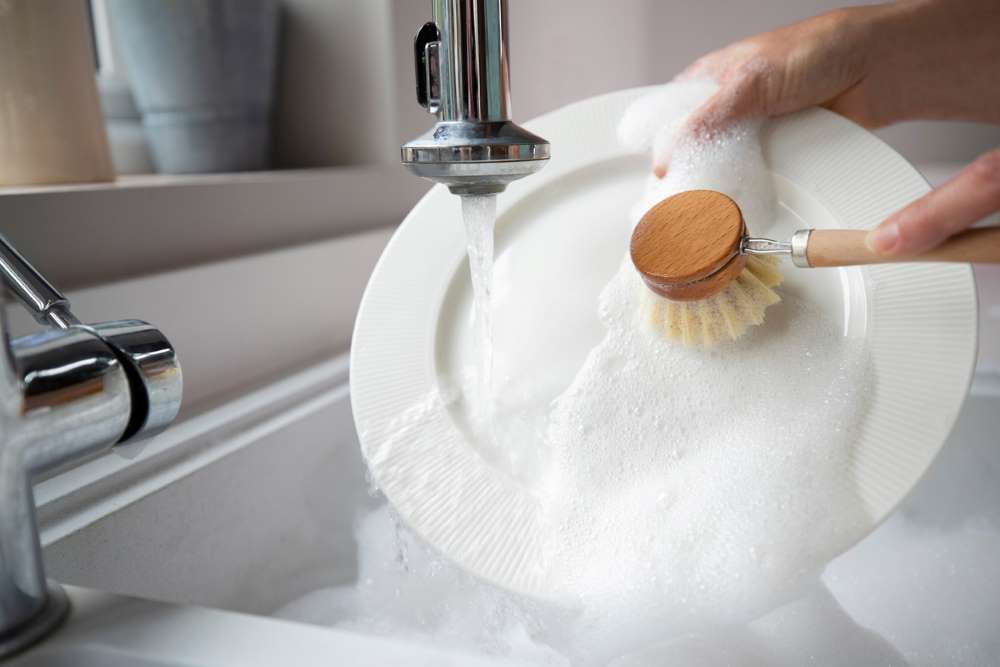
Now that summer is here, you might be relying on a run through the sprinkler or a cold glass of water to cool off. But while water can provide us with a lot of relief when the weather gets warm, we also need to do our part to reduce excessive usage. Not only will conserving water and eliminating wasteful practices allow your family to lead a greener lifestyle, but you'll also end up saving on your monthly water bills.
The reality is that 400 billion gallons of water are used throughout the U.S. each day. Anything you can do to limit your usage represents a step in the right direction. Not sure how to get started? Try out these smart water conservation tips throughout the summer. You might be surprised by the impact you make!
Install Low-Flow Appliances
You might not be eager to take on a home improvement project this summer, but the pay-off for this one might be well worth it. Installing a low-flow toilet or showerhead can improve water efficiency without disrupting your morning routine. Although toilet use accounts for 24% of all water use in our homes, you can save water and money by upgrading your commode to a newer model. If you've already done that or you're not in a position to do so, you can still save water by installing a toilet flapper or forgoing frequent flushing for household waste (like tissues or squashed insects).
Turn Off the Tap
Many of us have a bad habit of keeping the sink faucet on while brushing our teeth or allowing the shower to run while we take care of other tasks. Since the American Dental Association recommends that you brush your teeth twice a day (and most brushing sessions last around two minutes), you could save up to eight gallons of water each day if you turn off the tap while you brush! Teach every member of the household to be more mindful about when they turn on the faucet and for how long. As a rule, you should keep the water on only for as long as you truly need it running.
Run a Full Load
No doubt, your family goes through laundry and clean dishes in record time. But be careful about following a rigid schedule for wash sessions, as this might mean you could run a load of clothes or dishes that isn't yet full. It's actually more energy efficient to run a full dishwasher than it is to wash dishes by hand. When doing laundry, avoid using the permanent press cycle, as this uses more water; if you do need to run a lighter load, try not to make it a habit and make sure to adjust water levels accordingly. Encouraging your children to bring their dirty laundry into the laundry room each week can make sure you don't miss anything. Of course, you could also upgrade your dishwasher or washing machine to higher efficiency units in order to save water and energy.
Take Short Showers
After spending the day outside in the sun, a cool shower can provide a nice respite. Just don't take too long washing up, even if you have a water-saving showerhead. The EPA's WaterSense program estimates that 20% of the water you use in the shower goes to waste, which equates to 2.5 gallons of water every minute. Taking shorter showers as a family can be a good way to reduce waste while ensuring that everyone has access to the bathroom as needed. Note that even a shower is better than a bath (as baths can use anywhere from 20 to 70 gallons of water)! You might also install a push valve in your shower to allow you to conserve water throughout your shower without sacrificing your comfort.
Be Resourceful With Landscaping
No doubt, gardening and landscaping can make your home look its best. But you'll want to be careful about your watering habits if your goal is to conserve water. You should aim to water in the morning when temperatures are cooler, as this will minimize evaporation from the sun without making your plants vulnerable to fungi and disease. You should also use mulch when appropriate, as this will help your plants and trees retain moisture and reduce the need for frequent watering. If you use lawn sprinklers, make sure they're positioned so that water isn't spraying into your garden or onto the street so you don't waste this resource. Rain sensors can also be used to automatically shut off your system when it rains. And if your kids enjoy running through the sprinklers, make sure to set a time limit (and to water your plants at the same time!).
We could all use a reminder from time to time to save H2O. With these water conservation tips in mind, you'll be able to reduce waste and costs without changing the lives of your loved ones too radically.


























